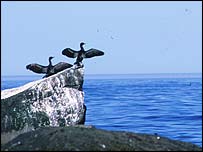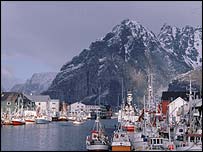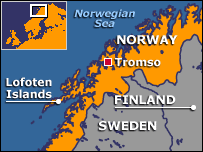|
WWF is concerned that oil development would not only endanger wildlife but disrupt tourism and fishing, on which the island community relies.
It says the Norwegian governments' own scientists
believe the impact of oil development - from
seismic survey work, which can disturb fish and
whales, to the risk of an oil spill - would be
disastrous to this sensitive marine environment.
"The Lofoten Islands are the heart of the spawning area for the large Arctic Norwegian cod stock living in the Barents Sea," says Ole Arve Misund, head of department at the Institute of Marine Research in Bergen, Norway.
"There is a major risk that this spawning area might be destroyed in the event of an oil spill. This is why we have advised against any oil development in the area."
The Norwegian Government says it has not yet made a decision on whether to allow oil companies to explore and produce oil in the Lofoten area.
A spokesman for the Ministry of Petroleum and Energy in Olso said it was considering the feedback from the public hearing.
"The decision will be made by the government in December," he told BBC News Online.
Images courtesy of WWF-Norway
Top
|


